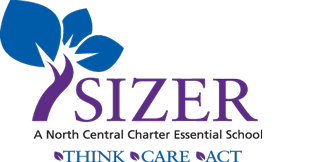
Guide to Grading and Reporting
Students at NCCES are assessed on both their understanding of content and on the work habits that they practice to ensure that they learn well.
This Guide (below) provides an overview of the NCCES system of grading and reporting, a system designed to ensure that students and families receive frequent and meaningful feedback on continued academic progress.
NCCES aims to provide unified, school-wide grading and reporting practices that:
- support the best instructional practices
- communicate the level of achievement of students to their parents/guardian and others
- provide information for students to evaluate themselves.
Standards
What is essential for students to know, understand, and be able to do? Standards are the “academic rules of school” - they communicate directly to students and families what is most essential to know, understand, and be able to do to ensure success in school and life beyond. NCCES essential standards are aligned with the state frameworks*. These standards, or “learning goals,” apply to all students.
Ongoing Assessment
How do we know if students know? How do we respond if students don’t learn or already know?
The primary purpose of assessment and evaluation is to improve student learning. At NCCES, students are continually assessed, receiving daily feedback regarding their continued progress. Teachers use this assessment information to adjust instruction and address the learning needs of each student. While teachers make hundreds of informal assessments daily, formal reports of progress are issued every six weeks.
Progress Reports and Report Cards
No single system of grading and reporting does it all. Understanding this, NCCES aims to be clear on its purpose for formally reporting student progress and grades. The two purposes of grading and reporting at NCCES are to:
- Communicate the Achievement Status of Students to Their Parents/Guardians and Others
- Provide Information for Student Self-Evaluation
Students and families receive formal, printed Progress Reports every six weeks. Report Cards and credits are issued at the end of each semester: in January and June. Each report contains information about three areas of student assessment: “Content Understanding”, “Work Habits”, and “Comments”, further described on the next page.
For an explanation of what the “state frameworks” are visit: www.doe.mass.edu.
NCCES grades describe student progress toward mastery of essential standards. When communicating with colleges, universities and other post-secondary programs, we suggest the following conversions of our grades:
ACHIEVEMENT DATA
READING TARGETS:
• MCAS ELA Test Score
• MCAS ELA Test Open Response Scores
• GRADE Reading Test Score
• (P)SAT Critical Reading Test Score
WRITING TARGETS:
• MCAS ELA Test Topic Development Score
• MCAS ELA Test Conventions Score
• (P)SAT Writing Test Score
• Benchmarks
MATH TARGETS:
• GMADE
• MCAS Math Test Score
• Math Class Exit Exam Score
• (P)SAT Mathematics Test Score
• NCCES Math Path Progress
PORTFOLIOS
What is a Portfolio?
A Portfolio is a collection of work that demonstrates the following: student growth over time, student ability to revise and to think about the way s/he learns, and student mastery of essential learning goals.
Why do we use Portfolios?
NCCES believes that students should be able to reflect upon own learning, its impact in their school and wider community lives, and how this learning is connected to future endeavors. This process asks students to evaluate themselves as learners and to incorporate thinking, organization, writing, and public speaking/presentation skills vital to success in life.
What kind of work is included in a Roundtable/Gateway portfolio?
Work selected by a student for a Roundtable/Gateway Portfolio are samples that show mastery of essential learning goals. Work is selected for content understanding, and/or demonstration of significant growth as an individual. Classroom teachers and advisors work with students throughout the year to help select and revise appropriate pieces for the presentation, and advisors provide significant help through the organizational process.
How are students assessed on their presentation?
Advisors review portfolios using a scoring guide. This assessment determines one of three possible outcomes: 1) the student passed; 2) the student must re-present the work (did not pass); or 3) the student passed with distinction. Students whose portfolios do not meet the standards for progression to the next grade level must continue to work to do so, either through the summer school program (at an additional cost) or re-enrollment in the present grade.
